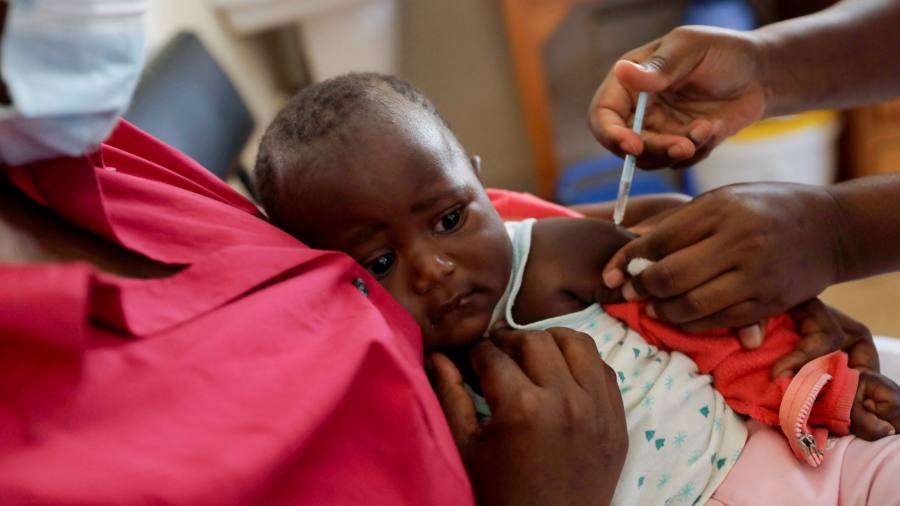Financial Times
September 10, 2022
Key messages by:
Joaquim Cardoso MSc.
health transformation — journal
September 10, 2022
GSK:
- UK pharma giant GSK has been developing a vaccine since 1984.
- This week, its pioneering Mosquirix jab crossed a crucial milestone when the World Health Organization endorsed its safety and efficacy with “prequalification” status.
- That paves the way for UN agencies to roll it out.
BIONTECH
- Germany’s BioNTech hopes it can follow up its success in pioneering Covid vaccines by creating the world’s first mRNA vaccines against malaria and tuberculosis.
- In the war against deadly diseases, key battles are being won.
ORIGINAL PUBLICATION (full version)

Malaria exacts a horrific toll. The mosquito-borne disease kills a child almost every minute.
Scientists have now made big advances in developing vaccines capable of controlling the disease (malaria).
The scale of their achievement can be gauged by how long it took to succeed.
UK pharma giant GSK has been developing a vaccine since 1984.
This week, its pioneering Mosquirix jab crossed a crucial milestone when the World Health Organization endorsed its safety and efficacy with “prequalification” status.
That paves the way for UN agencies to roll it out.
Separately, researchers at Oxford university this week published encouraging trial data on its novel malaria vaccine.
The team, which previously developed a Covid-19 jab with AstraZeneca, showed the effectiveness of a booster shot in a study involving more than 400 west African children.
Both vaccines work by targeting a protein on the malaria parasite’s surface that was identified in the early 1980s.
The slow arrival of a malaria vaccine reflects the difficulty of combating parasites. Their multi-stage life cycles and ability to evade the immune system present big challenges.

The malaria parasite itself was found in 1880.
An unusually long time has elapsed between the discovery of the infectious agent and the development of the vaccine.
On average, it takes several decades, though there are big variations and vaccines for some diseases remain works in progress.

The puzzle of how to protect against HIV has not yet been cracked despite intense efforts.
A more effective vaccine against tuberculosis is also frustratingly out of reach as the BCG jab developed more than a century ago does not work well in adults.

All records were broken when Covid vaccines were developed in less than a year.
The advances that underpinned that achievement might help in the development of other vaccines.
In particular, mRNA technology — which uses lab-created molecules to instruct cells how to make a protein — offers intriguing possibilities.
The advances that underpinned that achievement (covid-19 vaccines in short time), might help in the development of other vaccines.
In particular, mRNA technology — which uses lab-created molecules to instruct cells how to make a protein — offers intriguing possibilities.
Germany’s BioNTech hopes it can follow up its success in pioneering Covid vaccines by creating the world’s first mRNA vaccines against malaria and tuberculosis.
In the war against deadly diseases, key battles are being won.
Germany’s BioNTech hopes it can follow up its success in pioneering Covid vaccines by creating the world’s first mRNA vaccines against malaria and tuberculosis.
In the war against deadly diseases, key battles are being won.
Originally published at https://www.ft.com on September 10, 2022.












